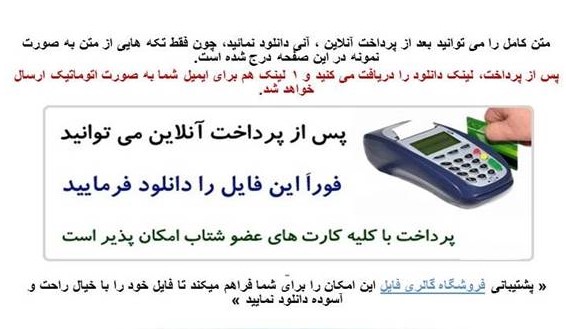لینک دانلود و خرید پایین توضیحات
فرمت فایل word و قابل ویرایش و پرینت
تعداد صفحات: 2
What is OPEC?
Frequently asked questions about crude oilFrequently asked questions about OPECFrequently asked questions about the petroleum industry
The organization of the Petroleum Exporting Countries (OPEC) is a permanent inter-governmental organization, currently made up of 11 oil producing and exporting countries, spread across three continents America, Asia and Africa. The members are Algeria, Indonesia, the Islamic Republic of Iran, Iraq, Kuwait, the Socialist People’s Libyan Arab Jamahiriya, Nigeria, Qatar, Saudi Arabia, United Arab Emirates & Venezuela.
These countries have a total population of about 545 million and for nearly all of them, oil is the main marketable commodity and foreign exchange earner. Thus, for these countries, oil is the vital key to development – economic, social and political. Their oil revenues are used not only to expand their economic and industrial base, but also to provide their people with jobs, education, health care and a decent standard of living.
The organization’s principal objectives are:
1. To co-ordinate and unify the petroleum policies of the Member Countries and to determine the best means for safeguarding their individual and collective interests;
2. To seek ways and means of ensuring the stabilization of prices in international oil markets, with a view to eliminating harmful and unnecessary fluctuations; and
3. To provide an efficient economic and regular supply of petroleum to consuming nations and a fair return on capital to those investing in the petroleum industry.
The Organization of the Petroleum Exporting Companies (OPEC) was created in 1960 to unify and protect the interests of oil-producing countries. OPEC allows oil-producing countries to guarantee their income by coordinating policies and prices among them. This unified front was created primarily in response to the efforts of Western oil companies to drive oil prices down. The original members of OPEC included Iran, Iraq, Kuwait, Saudi Arabia, and Venezuela. OPEC has since expanded to include six more countries, making a total membership of 11.
OPEC represents a considerable political and economical force. Two-thirds of the oil reserves in the world belong to OPEC members; likewise, OPEC countries are responsible for half of the world's oil exports. The fact that OPEC controls the availability of a substance so universally sought after by modern society renders the organization a force to be reckoned with.
The first display of the effect OPEC power could have on the world's politics was in the 1970s. When the Yom Kippur War exploded in the Middle East, the United States assisted Israel in defending itself against the Egyptian and Syrian armies. In what may have been a response to this interference in the war, OPEC instituted an oil embargo that targeted the United States and its European allies. The embargo lasted from October 19, 1973 to March 17, 1974.
The effects of the OPEC oil embargo were widespread. Immediate effects included inflation and economic recession in the United States and other countries targeted by the embargo. Car owners in the United States were restricted to specific days on which they could purchase gasoline: even dates for cars with even-numbered license plates, and odd dates for cars with odd-numbered license plates.
A national law introducing more restrictive speed limits was instituted, as well as a year-round Daylight Savings Time. The OPEC oil embargo also drove auto manufacturers to produce smaller and more fuel-efficient vehicles. Even after the embargo ended, oil prices continued to rise, and the United States economy continued to suffer.
Although OPEC is often seen as a villain in the political arena, the organization serves an important purpose. OPEC prevents its members from being taken advantage of by industrialized countries, by ensuring that oil-exporting countries are paid a fair price for crude oil. Because oil-exporting countries are dependent on industrialized countries for oil products, OPEC standards prevent industrialized countries from buying crude oil at rock-bottom prices, then turning around and selling oil products back at vastly inflated prices.

تحقیق درموردمتن انگلیسی اپک جدید 1000